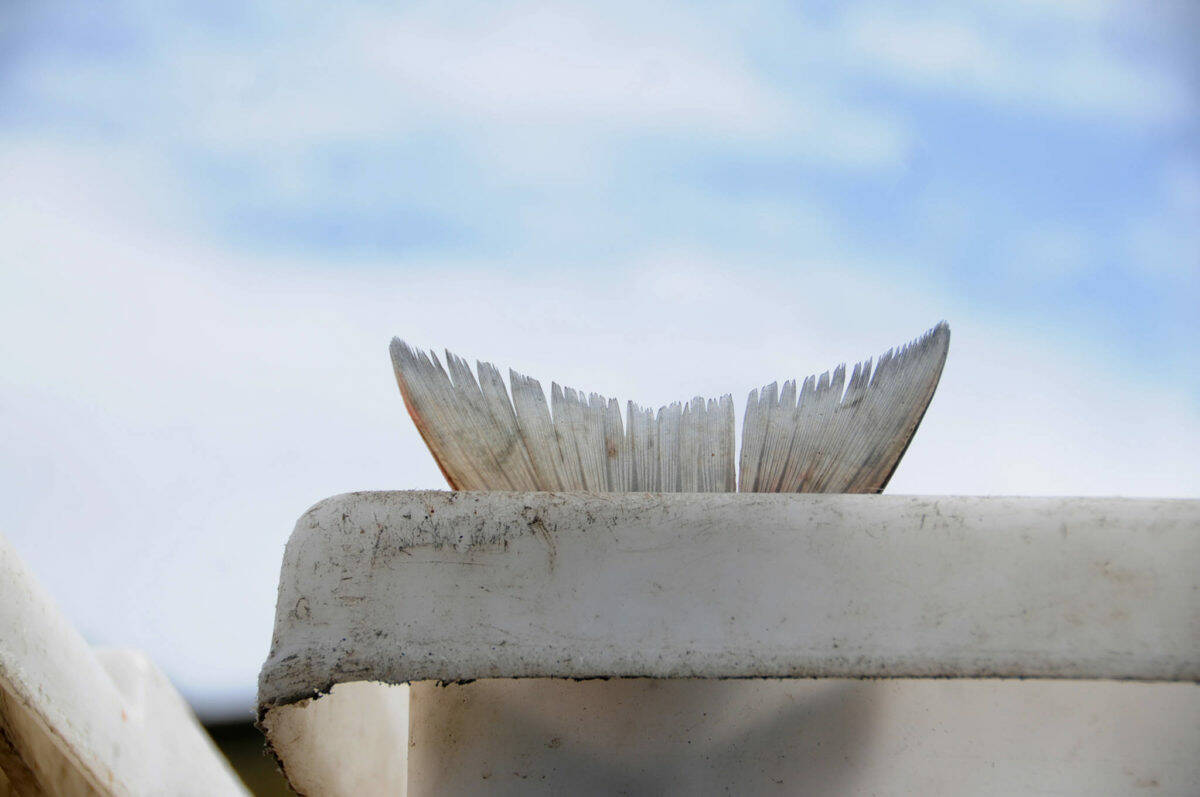Commercial fishers from the Kenai Peninsula threw their support behind a bill before the Alaska Legislature that would create a fishing permit buyback program for Cook Inlet’s east side setnetters.
S.B. 82, sponsored by Sen. Jesse Bjorkman, R-Nikiski, would create the voluntary program with the goal of alleviating tensions between eastern Cook Inlet’s commercial setnet fishermen and other fishing user groups on the Kenai and Kasilof rivers.
If the bill passes, the program would only become effective after an affirmative vote by permit holders, through which a lottery-style system would be used to retire existing fishing permits. Funding for the program would come from nongovernmental stakeholders.
Bjorkman told members of the Senate Resources Committee during an April 17 presentation that his version of the bill, S.B. 82, is “substantially unchanged” from the version long spearheaded by former Sen. Peter Micciche. Bjorkman removed from the bill language that would have expanded the powers of the Commercial Fisheries Entry Commission.
That group, which operates under the Alaska Department of Fish and Game, aims to conserve the economic health of commercial fisheries by limiting the number of fishers who participate. Micciche’s version of the bill would have allowed that group to divide administrative areas into multiple areas.
“The powers of the CFTC, or the Commercial Fisheries Entry Commission, remain the same under this bill as they had been,” Bjorkman told the committee.
Bjorkman, who drift net fishes in Cook Inlet, said the bill is meant to help increase the amount of chinook salmon returning to the Kenai and Kasilof rivers from Cook Inlet while also alleviating the pressure on all fisheries in the area.
“This bill provides all user groups with some benefit in relieving the amount of fishing pressure put on to Cook Inlet fish, particularly fish that are bound for the Kenai and Kasilof River,” Bjorkman said. “It will allow there to be less setnets in the water fishing when the setnet fishery is being prosecuted.”
Those efforts come as Cook Inlet’s east side senet fishers face the latest set of closures — for the first time this year implemented before their fishing season begins.
The Alaska Department of Fish and Game in March handed down 11 emergency orders that, among other things, completely closed the east side setnet fishery this season, as well as the Kenai River and Cook Inlet to sport fishing for king salmon. Those who support the regulations say the closure is needed to save dwindling chinook salmon, while those opposed say the setnet fishery is being punished for incidental harvest of a fish species they aren’t trying to catch.
Multiple setnet groups petitioned the Alaska Board of Fisheries this year to adjust the restrictions using an emergency clause, however, board members decided that an emergency did not exist for the fishery. Now, those looking to change those rules must wait until the board’s next meeting, in 2024.
Of the 11 people who testified during last week’s public hearing on S.B. 82, 10 were in favor of the bill. At least three people in support called the bill a “win-win” for the community, while others said reducing the amount of fishing gear in the water would provide long-needed relief to fishermen.
Russell Clark, who spoke in support of the bill, said he and his family have fished in Cook Inlet for more than 20 years. S.B. 82, he said, will give fishermen a way to retire while also benefiting those who choose to continue participating in the setnet fishery.
“It will bring money into the community that’s not already there and will also help stabilize a fishery that is in dire need of help,” Russell said. “There’s so many families that have been fishing setnet sites for generations and what this … will allow these sites to stabilize.”
George Townsend, who also spoke in support of the bill, said he is 68 years old and has been commercial fishing on the Kenai Peninsula since he was 18. A permit buyback program, Townsend said, would help make the east side setnet fishery profitable again.
“I believe that having a buyback plan is the only thing that makes sense going forward,” Townsend said. “Having fewer permits and leases as a result and fewer nets in the water will help make this fishery profitable again.”
More information about S.B. 82 can be found on the bill webpage at akleg.gov.
Reach reporter Ashlyn O’Hara at ashlyn.ohara@peninsulaclarion.com.


